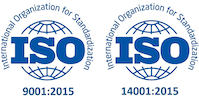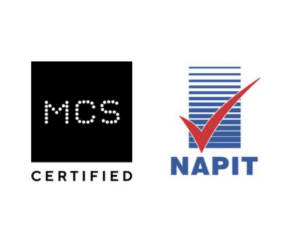Table of Contents
ToggleIntroduction
The global shift towards renewable energy sources is gaining momentum, driven by concerns over climate change, energy security, and the need for sustainable development. Solar energy, in particular, has emerged as a frontrunner in the race to decarbonize the economy and reduce dependence on fossil fuels. As a result, investing in solar panel manufacturers has captured the attention of investors seeking both financial returns and positive environmental impact.
Market Trends in Renewable Energy Stocks
The renewable energy sector, including solar panel manufacturing, is influenced by various market trends and dynamics. Understanding these trends is essential for assessing investment opportunities and risks. Growing awareness of climate change and the need for clean energy solutions is driving demand for solar panels. Ongoing advancements in solar technology, such as improvements in efficiency and cost reduction, are enhancing the competitiveness of solar energy.
Supportive policies and incentives, such as tax credits and subsidies for solar energy, can stimulate demand for solar panel manufacturers. Regulatory uncertainties, changes in tariffs, and trade disputes can pose challenges for solar panel manufacturers operating in global markets. While the solar energy sector offers promising investment opportunities, it is not without risks. Understanding and mitigating these risks is crucial for prudent investment decision-making.
The renewable energy sector, including solar panel manufacturing, is subject to cyclical fluctuations influenced by factors such as economic conditions and policy changes. Intense competition among solar panel manufacturers can lead to pricing pressure and margin compression, impacting profitability. Rapid technological advancements and innovations in solar technology can render existing technologies obsolete, posing risks for solar panel manufacturers. Companies that invest in research and development to stay ahead of technological trends are better positioned to mitigate technological risks and maintain competitiveness.
Environmental and Social Impact
Investing in solar panel manufacturers offers not only financial returns but also environmental and social benefits. Understanding the positive impact of solar energy is essential for socially responsible investing. Solar energy generates electricity without emitting greenhouse gases, helping to mitigate climate change and reduce air pollution. Solar energy utilizes sunlight, a renewable and abundant resource, thereby reducing reliance on finite fossil fuels. The solar energy sector creates job opportunities in manufacturing, installation, and maintenance, contributing to local economic development. Solar energy provides access to clean and affordable electricity in remote and underserved communities, promoting energy equity and poverty alleviation.
Developing an effective investment strategy is crucial for maximizing returns and managing risks in the solar panel manufacturing sector. Long-term investors may consider investing in established solar panel manufacturers with strong fundamentals and growth potential, aiming to capitalize on the long-term transition to renewable energy. Short-term traders may capitalize on short-term market trends and volatility in solar panel stocks, employing technical analysis and market timing strategies to generate profits.
Diversifying across various renewable energy sectors, such as solar, wind, and hydroelectric power, can help spread risk and optimize returns in a renewable energy portfolio. Balancing investments in solar panel manufacturers with other renewable energy assets, such as renewable energy ETFs and infrastructure funds, can enhance portfolio diversification and risk-adjusted returns.
Evaluating Management and Leadership
The management team plays a critical role in driving the success and performance of solar panel manufacturers. Evaluating management quality and leadership effectiveness is essential for investment decision-making. The CEO’s vision, strategic direction, and decision-making abilities significantly impact the company’s long-term success and shareholder value creation. The composition of the management team, including executives with industry expertise and operational experience, is indicative of the company’s ability to execute its business strategy and navigate industry challenges.
Effective board oversight and governance structures ensure accountability, transparency, and alignment with shareholder interests in solar panel manufacturers. Companies that uphold high ethical standards and integrity in their business practices build trust with stakeholders and mitigate reputational risks. Analyst recommendations and forecasts provide valuable insights into market sentiment, growth expectations, and stock price targets for solar panel manufacturers. Analysts issue buy, hold, or sell recommendations based on their assessment of a company’s financial performance, growth prospects, and valuation.
Analysts provide price targets indicating the expected future stock price of solar panel manufacturers, based on fundamental analysis and market dynamics. Analysts project future revenue growth rates for solar panel manufacturers, considering factors such as industry demand, market trends, and competitive dynamics. Analysts estimate future earnings per share (EPS) for solar panel manufacturers, reflecting anticipated profitability and performance.
Intellectual Property and Patent Landscape
Intellectual property (IP) and patents play a crucial role in protecting innovations and proprietary technologies in the solar panel manufacturing industry, driving competitiveness and market leadership. Companies file patents for innovations in solar cell technologies, such as crystalline silicon, thin-film, and emerging materials like perovskite and tandem solar cells, to protect intellectual property and secure market exclusivity. Patents cover manufacturing processes and techniques for producing solar panels, including wafer production, cell fabrication, module assembly, and quality control methods, safeguarding trade secrets and know-how.
Strong IP portfolios create barriers to entry for competitors, preventing unauthorized use or replication of proprietary technologies and innovations, and preserving market share and profitability for solar panel manufacturers. Solar panel manufacturers leverage their IP portfolios to enter licensing agreements, cross-licensing arrangements, and research collaborations with industry partners, generating additional revenue streams and fostering innovation ecosystems. Educating investors about the opportunities and risks in solar panel manufacturing is essential for promoting informed decision-making and responsible investing in renewable energy.
Technological Obsolescence and Adaptation
Technological obsolescence poses risks for solar panel manufacturers, requiring adaptation strategies to stay competitive and maintain market relevance in the fast-paced renewable energy industry. Solar panel manufacturers invest in automation and robotics technologies to streamline manufacturing processes, reduce production costs, improve product quality, and enhance operational efficiency, enabling scale and competitiveness in the market.
Companies explore advanced materials, such as perovskite and tandem solar cells, with higher efficiencies and lower costs than traditional silicon-based solar cells, to drive innovation and differentiate products in the market, staying ahead of technological obsolescence and market disruptions. Companies allocate resources to research and development (R&D) initiatives to innovate and develop next-generation solar technologies, materials, and manufacturing processes, fostering a culture of innovation and continuous improvement in the organization.
Environmental, Social, and Governance (ESG) Criteria
Environmental, social, and governance (ESG) criteria play an increasingly important role in investment decision-making, guiding investors towards sustainable and responsible investment opportunities in solar panel manufacturing. Investors assess solar panel manufacturers’ environmental performance based on factors such as carbon footprint, energy efficiency, waste management, and environmental certifications, to evaluate their sustainability practices and environmental impact.
Investors evaluate companies’ social responsibility practices, including labor practices, human rights, community engagement, and diversity and inclusion initiatives, to assess their impact on stakeholders and society. Investors analyze companies’ corporate governance practices, including board composition, executive compensation, shareholder rights, and transparency and accountability mechanisms, to ensure alignment with shareholder interests and promote ethical business conduct.
Investors assess companies’ supply chain practices, including responsible sourcing of raw materials, ethical labor practices, and supply chain transparency and traceability, to mitigate supply chain risks and promote ethical and sustainable supply chains in solar panel manufacturing.
Strategic Partnerships and Collaborations
Strategic partnerships and collaborations play a vital role in driving innovation, market expansion, and competitive advantage for solar panel manufacturers. Solar panel manufacturers form technology partnerships and joint ventures with research institutions, universities, and technology companies to develop and commercialize next-generation solar technologies, materials, and manufacturing processes. Solar panel manufacturers collaborate with suppliers, contract manufacturers, and logistics providers to optimize supply chain efficiency, reduce costs, and ensure quality and reliability in solar panel production and distribution.
Solar panel manufacturers establish distribution partnerships with retailers, wholesalers, and installers to expand market reach and access new customer segments, leveraging existing distribution networks and brand awareness to drive sales and market penetration. Solar panel manufacturers form alliances with project developers, utilities, and financial institutions to co-develop solar projects, including utility-scale solar farms, rooftop solar installations, and community solar initiatives, tapping into new markets and revenue streams.
Conclusion
Investing in solar panel manufacturers offers compelling opportunities for financial returns, environmental impact, and social responsibility. By understanding the market dynamics, technological innovations, regulatory landscape, and investment strategies in the solar energy sector, investors can navigate risks and capitalize on growth opportunities in renewable energy stocks. As the world transitions towards a sustainable energy future, solar panel manufacturers are poised to play a central role in driving the clean energy revolution and shaping the investment landscape for years to come.
FAQs
What factors should I consider before investing in solar panel manufacturers?
Before investing in solar panel manufacturers, it’s essential to consider factors such as the company’s financial health, growth prospects, market trends in the solar energy sector, regulatory environment, technological innovations, and competitive landscape. Conducting thorough research and analysis can help you make informed investment decisions.
How do solar panel manufacturers contribute to renewable energy investment portfolios?
Solar panel manufacturers play a crucial role in renewable energy investment portfolios by providing exposure to the growing solar energy sector. Investing in solar panel manufacturers offers the opportunity to benefit from the transition to clean energy, diversify portfolios, and align investment strategies with sustainability goals.
What are the potential risks associated with investing in solar panel manufacturers?
Like any investment, investing in solar panel manufacturers carries certain risks. These may include market volatility, technological obsolescence, regulatory changes, competitive pressures, supply chain disruptions, and macroeconomic factors. Understanding and mitigating these risks is essential for prudent investment decision-making.
How do I evaluate the financial performance of solar panel manufacturers?
Evaluating the financial performance of solar panel manufacturers involves analyzing metrics such as revenue growth, profitability, margins, earnings per share (EPS), return on investment (ROI), debt levels, cash flow, and financial ratios. Comparing these metrics with industry benchmarks and peer companies can help assess the company’s financial health and investment potential.
What role does government policy and incentives play in the solar panel manufacturing industry?
Government policies and incentives, such as tax credits, subsidies, feed-in tariffs, renewable energy targets, and regulatory frameworks, significantly impact the solar panel manufacturing industry. Supportive policies can stimulate demand for solar energy, drive market growth, and create favorable investment conditions, while regulatory uncertainties or policy changes can pose risks to investment viability. Understanding the regulatory landscape is crucial for assessing investment opportunities in solar panel manufacturers.







